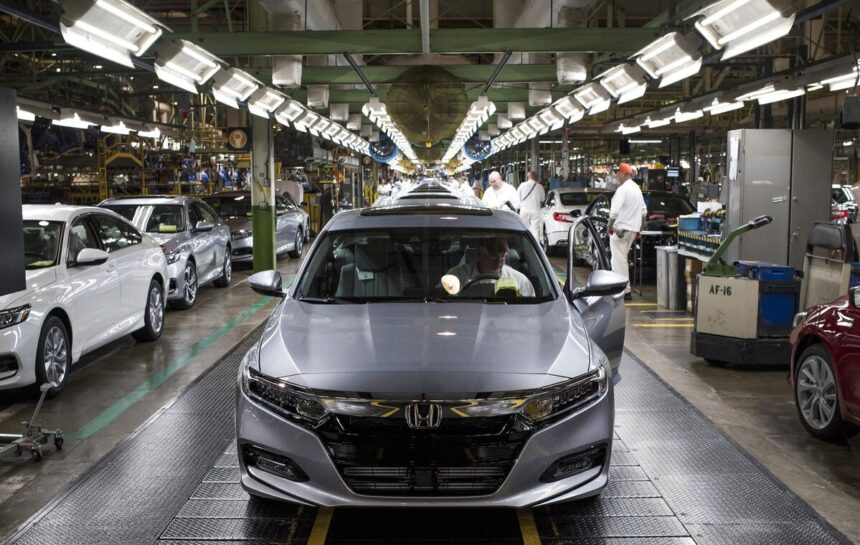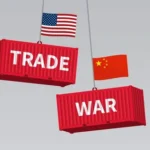Honda Motor Co. has announced a significant forecast for a 59% drop in profits for the current financial year, highlighting the profound impact of U.S. tariffs and the growing influence of Chinese electric vehicle (EV) manufacturers. The Japanese automaker’s full-year operating income is expected to shrink to 500 billion yen ($3.38 billion) for the fiscal year ending March 31, 2026, down from 1.21 trillion yen in the previous year. This announcement underscores the challenges Honda and other carmakers are facing due to escalating trade tensions and the rise of global competitors in the EV space.
Impact of U.S. Tariffs on Profitability
Honda’s profit forecast for the upcoming year is primarily influenced by the ongoing tariffs imposed by the U.S. under President Donald Trump’s administration. The company estimates that tariffs will cost it a staggering 650 billion yen ($4.38 billion) in operating profits for fiscal 2026. Of this amount, 300 billion yen is directly attributed to the tariffs on imports, particularly affecting the company’s 550,000 finished cars that are imported into the U.S. Honda has outlined efforts to mitigate approximately 200 billion yen of the tariff burden, but the road ahead remains challenging due to the uncertainty surrounding trade policies.
Read More: Higher Returns Put GCC on the Global Private Infrastructure Investment Map
Delay in Canada EV Plans Amid Sluggish Demand
In another significant decision, Honda revealed that it would delay its plan to build an electric vehicle (EV) supply chain in Ontario, Canada, for about two years. Originally announced in April 2024, the plan aimed to establish Honda as a major player in the North American EV market. However, due to the current slowdown in EV demand, the company has decided to postpone this initiative. The move reflects broader market challenges, as automakers are grappling with shifting consumer preferences and a competitive environment dominated by newer EV companies, particularly from China.
Honda Faces Growing Competition from Chinese EV Manufacturers
The automobile industry is experiencing a major transformation, with traditional manufacturers like Honda feeling the pressure from the rapid rise of Chinese EV companies. These companies have been rapidly scaling production and introducing competitive pricing, creating an intense competitive landscape. Honda’s decision to delay its EV supply chain in Canada is seen as part of its strategy to reassess market conditions and align its future efforts more closely with evolving consumer demands.
Honda’s CEO, Toshihiro Mibe, emphasized that despite the difficult situation in the automotive industry, the company is determined to explore new growth avenues through strategic partnerships. Mibe stressed that these alliances are becoming increasingly vital as automakers face the dual challenges of tariffs and emerging competitors in the EV sector. Honda continues to cooperate with Nissan on technology but has called off talks to merge with the Japanese automaker earlier this year.
Also Read: Oil Market Outlook 2025: Trade Deals to Turmoil Ahead?
Strategic Directions
Honda’s outlook for fiscal 2026 presents a more cautious approach, reflecting the broader automotive industry’s struggle to adapt to the shifting global market. The company remains committed to adjusting its strategies, leveraging partnerships to navigate the ongoing challenges. While the financial forecast is grim, Honda’s leadership remains optimistic about future growth opportunities, particularly through innovation and strategic collaborations within the industry.
In The End
Despite these setbacks, Honda is looking forward to revitalizing its position in the market, emphasizing the importance of resilience and adaptability in the face of economic and political headwinds. The company’s focus will likely shift towards more agile and cost-effective strategies to recover from the damage inflicted by tariffs and increased competition from EV disruptors.
Follow 10X Times for more business news.






